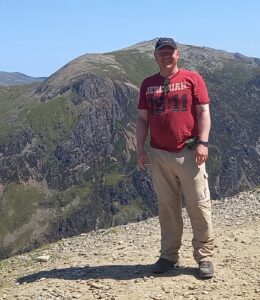I’ve recently had cause to ponder situations where my need to understand something has been bouncing up against limits. Where it has become clear that there is no explanation to be had, that, instead, wisdom requires a living with the absence of an explanation – what philosophers call a lacuna, a gap in the understanding. I think this is healthy, but it has made me reflect on some areas in my life where I have come to what I now think of as premature certainty, a premature closing off of the gap, a refusal to live with the lacunae.
Two examples from the United States, as they are matters far from my daily life, and therefore quite clearly areas where there is no need for me to seek any certainty, where it is easiest.
The first is the collapse of WTC7. This does not make sense to me. The official explanation is that it was brought down by fire. The official explanation has been proven false. To an outside observer it looks very like a controlled demolition, but positing a controlled demolition requires a large amount of other hypotheses which very rapidly enter into the realms of madness. If I ponder this for too long then I end up in a place of extreme cognitive dissonance. So now I say: I don’t know what happened. I don’t understand what happened. It’s a gap.
The second is the 2020 election. I remember when it happened thinking that it was odd, and in particular I remember the fact that 18 of the 19 hitherto ‘bellwether’ counties had voted for Trump, so Biden winning in that context seemed very odd (the conventional explanation for that oddness is here). The ‘down the rabbit-hole’ explanation is here. Pondering the way in which US elections are carried out – and the role of the ‘voting machines’ – makes me think that, if there isn’t fraud, that is a result of divine grace rather than a robust system. I have no idea what the truth is. I don’t know what happened. I don’t understand what happened. It’s a gap.
I’m coming to see that desire for premature certainty as the high road to delusion (and also all sorts of conflicts), and I interpret it now in the light of lateral hemispheres. The desire for certainty is a sign of left-hemisphere capture, a hall of mirrors. Whereas sitting with paradox, with ignorance, with acknowledged lacunae – this is the way.
I am slowly becoming healthy again. Thanks be to God.





You must be logged in to post a comment.